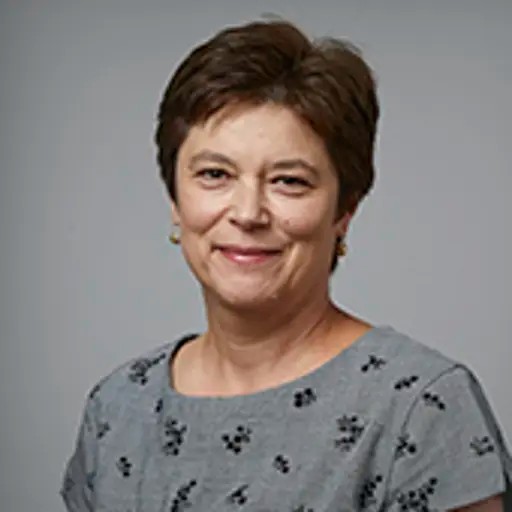
Physics Professor Tünde Fülöp recently received the prestigious Alfvén Prize for her research on runaway electrons in fusion plasmas – a body of work that has had a significant impact on fusion research worldwide.
"I am excited about the progress that could be made in this field in the coming years. The award now provides me with an important platform to discuss my research group's findings," says Tünde Fülöp.
A plasma is a collection of free charged particles, created when electrons are stripped from atomic nuclei, for example, when a material is heated. Wherever strong electric fields exist in plasmas, such as in solar flares and lightning discharges in thunderstorms, a phenomenon known as electron runaway can occur. Runaway electrons can also appear in devices called tokamaks, a type of fusion reactor that uses electric current. In these reactors, runaway electrons can cause significant damage.
"Starting up or shutting down a plasma in a tokamak in a controlled manner is not easy," explains Tünde Fülöp, Professor at the Department of Physics. "If you’re not careful, runaway electrons can form, especially during the shutdown phase, and in the worst-case scenario, they can damage the fusion reactor's inner wall. My research group is working on finding ways to prevent these runaway electrons, or at least mitigate their harmful effects. We have developed theoretical models and simulation tools, which we have made openly available so that they can be used by research groups worldwide."
Great optimism for fusion research
The research group’s work has had a major impact, and they are now collaborating with almost all existing tokamak experiments in Europe and the US, including ITER, as well as the planned SPARC experiment being built in collaboration between MIT in the US and the private company Commonwealth Fusion Systems.
"Overall, we are in a dynamic period with a lot of optimism in the field of fusion. We have very good numerical tools, more computing power, better diagnostic methods, and the ability to control the plasma. Many technical advancements have also been made, including in high-temperature superconductivity, which opens up entirely new possibilities in building devices."
Awarded the Hannes Alfvén Prize
For her research achievements, Tünde Fülöp is now being awarded the Alfvén Prize by the European Physical Society. The prize is named after the Swedish physicist Hannes Alfvén, who received the Nobel Prize in Physics in 1970 for his contributions and discoveries in various areas of plasma physics. To date, he is the only Nobel laureate in this field.
"It's incredible to be among the established plasma physicists who have received this prestigious award. It’s a great honour, and it does feel rather surreal! What feels especially gratifying is that our work, which is based on results developed over many years together with fantastic doctoral students and post-docs here at Chalmers, is being recognised."
She further explains that the award holds extra personal significance for her. Hannes Alfvén, with his broad interests and significant environmental and societal engagement, has been an important role model and inspiration for Tünde Fülöp throughout her scientific career. His name appeared in the title of her very first scientific paper, and now they are connected again through this award in his name. It was her interest in the future of energy supply that initially drew her to fusion research and plasma physics.
"It also feels good as a female researcher to receive the award, and I’ve received a lot of love and support from other female physicists. Counting my name, there are now only three female recipients out of the 37 who have been awarded the prize throughout its history," says Tünde Fülöp.

Ongoing research in various projects
Tünde Fülöp’s research on electron acceleration is relevant in many other contexts beyond tokamak experiments. One example is the Wallenberg-funded project "Extreme Plasma Flares", in which her research group collaborates with space physicists at the KTH Royal Institute of Technology and the Swedish Institute of Space Physics in Uppsala to determine the conditions required for extremely strong energy flows in Earth's magnetosphere.
Another example is her Wallenberg Scholar project. The goal there is to predict, control, and optimise particle acceleration and radiation in laboratory plasmas used in fusion power plants and laser-based particle acceleration.
"In a third project, we are collaborating with, among others, the 2023 Nobel laureate in physics, Anne L'Huillier, and her research group in an initiative where we are investigating ultra-short light pulses."
Next stop: Merton College in Oxford
This autumn, Tünde Fülöp will spend a term as a Visiting Research Fellow at the University of Oxford, specifically at the renowned Merton College, founded in 1264. There, she will collaborate with theoretical physicists at the Rudolf Peierls Centre for Theoretical Physics, which will provide new contacts and opportunities for deepened research.
"I’ve been on short visits to Merton College before, and it’s been fantastic every time. I’m looking forward to delving into theoretical plasma physics, getting inspired, making new connections, and gaining insight into how other prominent groups conduct their work. I believe that it will be a boost that will invigorate our work at Chalmers onwards."
About the Alfvén Prize
Since 2000, the Plasma Physics Division of the European Physical Society has annually awarded the Hannes Alfvén Prize to individuals who have made outstanding contributions to plasma physics. It is given for research achievements that have either already shaped the field of plasma physics or show the potential to do so in the future. The 2024 prize is awarded to Tünde Fülöp, Chalmers University of Technology, and Per Helander, Max Planck Institute for Plasma Physics. Read EPS's motivation for the award.
Kontakt
- Full Professor, Subatomic, High Energy and Plasma Physics, Physics
